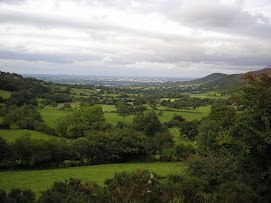33 Hang the curtain from the clasps and place the ark of the Testimony behind the curtain. The curtain will separate the Holy Place from the Most Holy Place.
These are the detailed instructions for the building of the Tabernacle. It refers here in verse 8 to the curtain which separates the Holy Place from the Most Holy Place.
These are the two most sacred rooms in the Tabernacle, with the holy Place being where the incense altar , the lampstand and the Bread of the Presence was kept and the Most holy Place being the room that only the High Priest was allowed to enter, and even that was only on one day of the year, the Day of Atonement. That was the day when the priest made atonement for the sins of the nation as a whole.
The curtain was a symbol of the divide between God and us. It set the Ark of the covenant, where God's presence rested on the cover, apart from the rest of the Tabernacle, signifying how God was separated from us, or rather, how separated from God we were. Our sin, symbolised by the curtain, kept us apart. This is just my interpretation though and may be completely wrong.
When Christ died on the cross, the curtain that separates the two rooms was torn in two from top to bottom, symbolising that we now have free access to God (we can freely approach his throne of grace) because of the sacrifice of Jesus. We don't have to approach God through sacrifices and priests.
We don't have to ask a priest for forgiveness, we can go direct to God ourselves. Whereas before, we were considered sinful and so could not go to God direct (because He is so pure, so holy, he can have nothing to do with sin), now we are seen as righteous, because Jesus has taken all our sins away and we have received the forgiveness of God.
There are times when I am just so in awe of all that God has done, that Jesus has done, for me, for each one of us. I mean, can you imagine having one of your children do what Jesus did? Suffer what he went through? It’s difficult to comprehend the magnitude of it all at times, it is so overwhelming, to think that God loves each and every one of us so much, that He would do this. And then He doesn't go and leave us to fend for ourselves, either, oh no. He sends His Holy Spirit, the comforter, the guide, to help us. How many times has something happened and you feel or hear this voice inside, and you just know what to say, what to do, what not to do? If we all listened to the voice of the Holy Spirit within us all the time, just think what a better replace this world would be.





